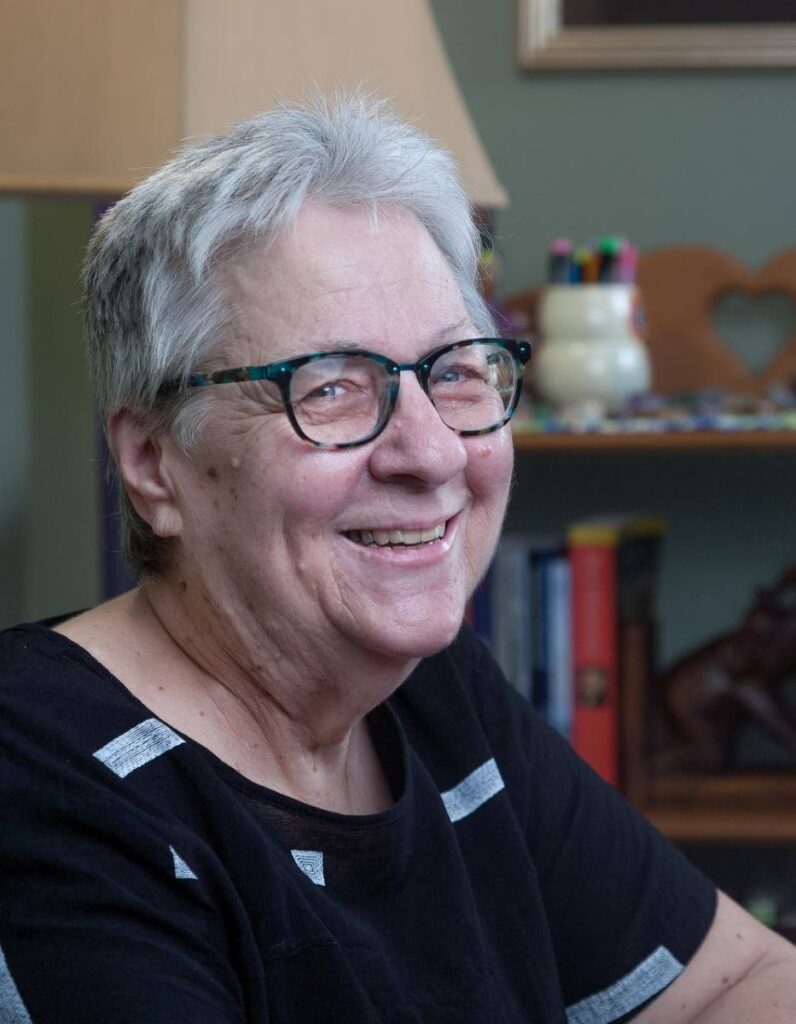Defending green faces

Debbie Jacob
SOMETIMES expressing an opinion about anything from a good calypso or favourite book to the best way to tackle education or crime feels like lying down alone in the middle of a desert and letting the vultures pick your bones clean. Critics with opposite views pounce on viewpoints they oppose and counter with vicious, personal attacks. Speaking your mind can be demoralising.
We live in a world where tolerance has virtually vanished and public shaming rivals the days when disgraced people were chastised in the public square and gawked at by self-righteous cynics who enjoyed others’ misfortunes.
Smug, overzealous critics feel no opinions matter other than their own and they whip up support on social media, which has replaced the public square. Arguably, social media is more dangerous than rabble-rousing mobs because attackers on the internet don’t have to personally face their victims, and they feel empowered by the amount of “likes” critical posts garner.
Whatever happened to that sentiment “I disagree with what you say, but defend to the death your right to say it?”
Two recent stories on the internet have me thinking about the dangers of blocking opposing views and the rush to judgement that increasingly defines us. Both took place in Catholic schools, though I caution you not to make that the issue. I’m not attacking religion here. I’m considering two important incidents that should make us think about fairness.
The first story was about an ultra-conservative, well-known American football (NFL) player, Harrison Butker, the field goal kicker for the Kansas City Chiefs.
Butker’s controversial commencement speech for Benedictine Catholic School criticised the LGBTQ+ community, abortions, in vitro fertilisation (IVF) and anything that did not match his own personal views. He told graduating women in the audience that they had been told “the most diabolical lies” and their main purpose in life was to be “homemakers.”
When his sentiments filtered out to the public, many enraged women called for the Chiefs to fire him. There’s not a single sentiment in his speech I can stand up for. But I feel we must discuss reactionary views like his so that we can disarm them.
I question whether there is a bigger danger in forcing people with opposing views to be silent. We must draw the line for anyone who backs extreme views with lies, hateful rhetoric, personal attacks and prejudice, but that doesn’t mean that we should wipe out all conservative views if we are liberal or all liberal views if we are conservative.
At one time, we believed that people could only make decisions by hearing both sides of an issue. We trusted people to distinguish between logical or outlandish; progressive or reactionary, and we didn’t feel threatened by differing viewpoints. Shutting down views we don’t want to hear is the easiest way not to deal with a problem.
The second story featured two white teenagers from Saint Francis High School in California who got US$1.6 million after being expelled for wearing blackfaces, which is considered racist.
The teenagers had taken pictures of themselves in a white mask and then a dark mask. The pictures, taken a few years ago, resurfaced and went viral after police killed George Floyd and the Black Lives Matter movement took off.
The students got expelled from school for being racist, but they proved in court that one mother gave anti-acne face masks to the boys. They were dark green – not black. The story demonstrates the costly rush to judgement that can destroy lives.
In the teens’ defence, the lawyer pointed out how an internet trail with false information could haunt them for the next 60 years.
The jury sided with the teens. We are so rooted and invested in our emotional reactions that we often hide behind blinders blocking the view to good sense and fairness. We react emotionally, attack people verbally and go in for the kill rather than slow down, work through our emotions and consider all the facts.
It’s hard to consider opposing opinions and difficult to accept that people have a right to express themselves without fear of retribution – unless those opinions are undermining, malicious, illegal attacks meant to destroy someone or create prejudice.
It’s difficult to hear viewpoints that undermine decades of social progress or progressive laws that we believe protect fundamental rights. But somewhere in all of this muddled mess we see in US news is the concept of freedom of speech, still an important pillar in all democratic societies.

Comments
"Defending green faces"